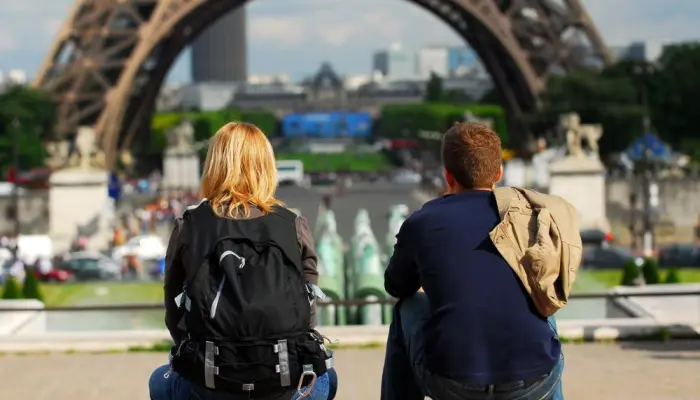Unfortunately, even experienced travelers can fall victim to sophisticated scammers. Tourists, finding themselves in an unfamiliar country, often become easy targets for pickpockets and fraudsters due to disorientation and lowered vigilance.
Travel expert and founder of Panache Cruises, James Cole, shares information about the most common fraud schemes that tourists face, especially in popular tourist destinations.
"Many mistakenly believe that only naive tourists are deceived, but even the most seasoned travelers can fall prey to cunning schemes. It's important to learn about the most common scams in tourism to recognize traps," advises Cole.
He also recommends keeping valuables in inconspicuous places close to your body and being cautious with overly friendly locals who try to gain your trust to lure you into a scam.
"If a situation seems suspicious or too good to be true, trust your instincts - it's better to be safe than sorry," he adds.
Most Common Scams Targeting Tourists
- The 'bump and grab' scheme. A simple and effective way of theft where one thief distracts the victim while another steals their valuables. Be particularly cautious in crowded tourist areas and at stations. Don't carry all valuables with you and use hidden money belts for cash and documents.
- Overpriced taxi fares. Never agree to start a trip if the driver says the meter is broken, as it often leads to a hefty overcharge. Always watch the meter during the ride, and if you suspect it's running faster than usual, ask the driver to stop and get out.
- ATM fraud. Be wary if a stranger offers help at an ATM. Often, this is a way to install a card skimmer to capture your card details. Use ATMs in busy areas and don't let strangers approach you during transactions.
- Currency exchange fraud. When visiting a foreign country, beware of sellers and exchangers who might return insufficient change or use deceptive exchange rates. Calculate the expected amount before any transaction and take the time to count your change.
- 'Free' services scams. Be vigilant about offers of free services such as animal photos or street performances. Often, after such 'free' services, you may be obliged to pay a large sum.
- Entertainment and excursion scams. Beware of enticing offers for cheap tours or entertainments. Sometimes after luring you into a trap, additional, unexpected fees may be demanded.
- 'Friendly' strangers. Avoid situations where strangers offer their help or company, especially if they insistently offer you drinks or invite you to unknown places.
- Housing scams. Pay special attention to booking accommodation through verified sites. Avoid paying in advance for accommodation through unreliable services, especially if they offer 'advantageous' conditions that seem too good to be true.
Useful Contacts
In case of problems or emergencies during your trip abroad, it is important to have a list of contacts for assistance. Here are key contacts to save in advance:
- Consulate or embassy of your country: Always have the contacts of the nearest consulate or embassy of your country in the visited country. They can help in case of loss of documents, medical emergencies, or legal issues.
- Local emergency services: Learn and save the emergency service numbers of the visited country, such as police, ambulance, and fire brigade.
- Insurance company: If you have travel insurance, save the contacts of your insurance company and the policy number. They may be needed in case of medical attention or other insurance events.
- Bank support services: In case of problems with bank cards or card loss, you need to contact your bank immediately. Write down the phone numbers of your bank's support service.
- Phone numbers for blocking bank cards: For immediate blocking of lost or stolen cards.
Additionally, it's recommended to have a written copy of all important contacts on paper in case your mobile phone becomes unavailable.
Conclusion
Traveling abroad is always filled with new impressions and discoveries. However, to keep your vacation pleasant and safe, it is important to be attentive and cautious, especially regarding scam schemes. Learning about common tourist scams, preparing, and taking precautionary measures will help you avoid unpleasant situations and enjoy your journey.
Remember, being informed and vigilant are your best allies in travel. Keeping important contacts and a conscious attitude towards your safety will ensure peace of mind and allow you to enjoy your trip. Travel smartly and relish every new adventure!
